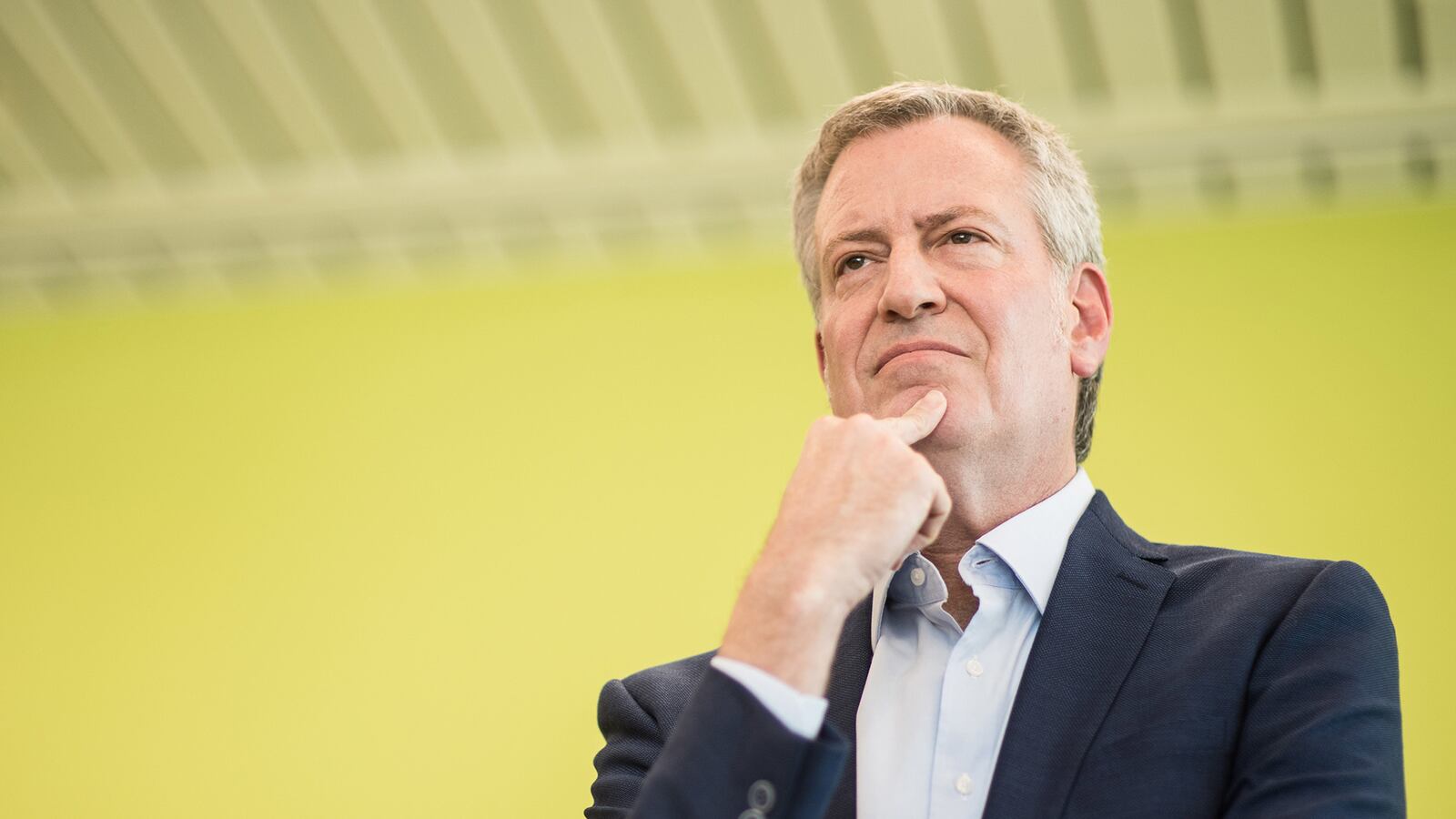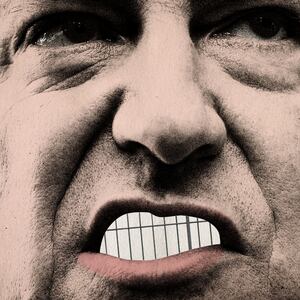When Mayor Bill de Blasio announced his bid for president, after months of mulling, New Yorkers—76 percent of whom had said he shouldn’t run— shrugged. That’s to be expected. While being the mayor of the nation’s largest city might seem like a perfect position from which to launch a national political career, New Yorkers don’t take kindly to mayors with national aspirations. History tells us that—contra Sinatra’s boast that “if I can make it there, I can make it anywhere”—being the mayor of Gotham is a dead end job.
New York City is one of the world’s great cities. It has been a center of world finance for nearly 200 years. It birthed the original plutocrats of the Gilded Age, along with industrialism in its modern capitalist form. New York City exemplified the age of mass consumption, popular entertainment, and the department store. It has always sat at the center of the news, media, and publishing universe. It is also home to the United Nations. Given the attention, the city deservedly gets, mayors have the sort of recognition and exposure that makes them household names. Yet while LaGuardia, Lindsay, Koch, Giuliani, and Bloomberg all had national reputations, none of them have held an office outside of New York City.
Add de Blasio to that list. He ran for mayor in 2013 on a progressive platform, vowing to take on the hyper-gentrification and increasing income inequality of the Bloomberg era. His “Tale of Two Cities” theme called for serving and servicing forgotten New Yorkers—or real New Yorkers. New York City has always had this thing for authenticity, as a city of immigrants and migrants that has constantly tried to define itself against the same glamourized media images of it the city that help draw people here.
Having foreseen the blue wave rising, de Blasio has struggled to stay atop it. His administration has been defined in many ways by his public feud with Governor Andrew Cuomo— who battled the mayor over housing, education, infrastructure, transportation, and public health—and who swerved hard to the left himself after the election of Trump in 2016, and is now a key supporter of Joe Biden. New York mayors often feud with governors and presidents; this one has been outfoxed and outflanked.
Moreover, that de Blasio’s further left politics are now closer to the mainstream of the Democratic party hardly makes him—after a term of half limited success and with inequality continuing to widen on his watch—the natural standard bearer for a party that’s now full of progressives, including Sanders, Elizabeth Warren and NYC’s own AOC. (Despite having endorsed her opponent, incumbent Congressman and Queens boss Joe Crowley, De Blasio insisted afterward that ‘“Alexandria Ocasio-Cortez is someone who absolutely comes from my wing of the Democratic Party”).
For all the media exposure they get, New York mayors also have to overcome the cultural baggage of Gotham to achieve national office. They are clearly representatives of cosmopolitanism, of the vast multicultural landscape, of urbanism, high finance and big money, as well as unionism and social movements and activist politics. In short, they play against every image we have of middle of the road America. And the electoral college means there’s no political gain in running as America’s mayor, as one of de Blasio’s predecessors (whatever happened to that guy?) tried to do a few years after stumbling into that title in his last days in office.
We have always had a love-hate relationship as a nation with Gotham. There is a whole film culture about its destruction, from King Kong all the way through the Avengers. It is a Hollywood trope to show New York in ruins. Books too, like the concrete eating tiger who destroys whole blocks of Manhattan in Jonathan Lethem’s Chronic City. This dystopian imagining of New York plays because to many Americans, New York is representative of chaos and dysfunction because of its sheer size and its embrace of outsiders. Because New York never settles and never remains still, it is always on the make, on the go, always reinventing itself and its past. It seems to many a place without a tradition, only a chaotic present and a future.
Maybe one day, we’ll have a mayor who can overcome the cultural baggage to make the leap. I would argue that we would be a better nation for it. Scholar Benjamin Barber makes the case in his recent book, If Mayors Ruled the World. The skills it takes to master the local political landscape are massive.
A successful mayor is in charge of our largest city, bigger than some states in population. The budget is staggering. The problems are massive. Because of the ethnic populations and the presence of the United Nations, New York City mayors need to have a foreign policy presence. Because of economic realities, they need to promote jobs, industry and because it is also a progressive city, they need to promote equality. They need to worry about homelessness and hunger—not just in theory—and about the nuts and bolts of basic policy. They truly understand that, as former House Speaker Tip O'Neill famously put it, “all politics is local.”
The country could do much worse than a successful mayor of New York City as president. But, it will not be this mayor.







